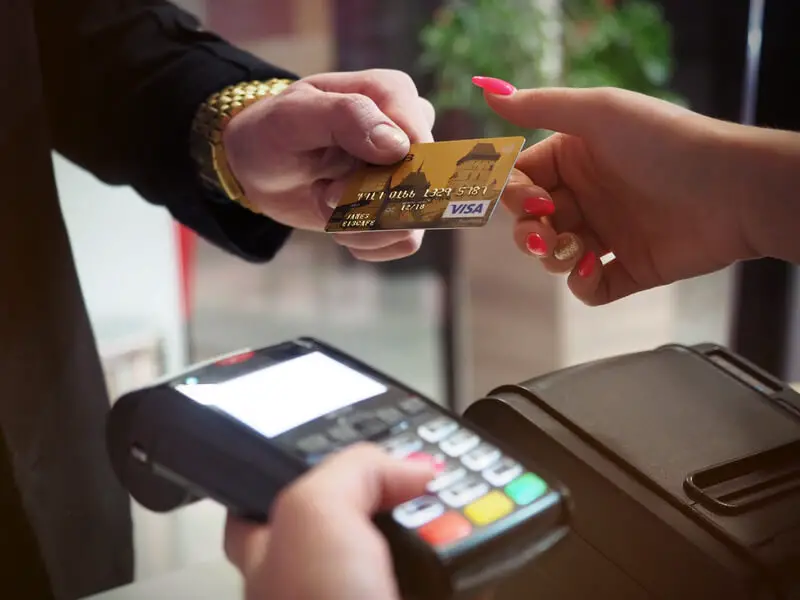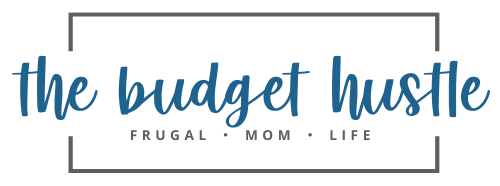This site contains affiliate links to products. We may receive a commission for purchases made through these links.
A credit score is a highly coveted number that basically rules your financial life. Lenders and other credit companies use this number to decide if they want to take a chance on you with their money. Any credit score can be raised with just a little work.
I never realized how important a credit score was until we bought our first house. Right before the recession, we purchased our first home. Interest rates had hit a low (for the time) of 5%. So we found a reasonably priced house and went after it.
When I sat down with the mortgage lady, she informed us that my husband’s credit score was under 700 and that this would affect our interest rate. We were like “what!?”. So after realizing it was because he had bought some golf clubs, I was not too happy. Come to find out he used a credit card and the bill still went to his dad’s house. It had gone 3 months without being paid because his dad just put the bill in Michael’s “bill box” before we realized the damage that had been done.
We were in our twenties and just really starting to learn what credit was all about. So turns out, my score and income to debt ratio was good enough to buy the house in my name with the lower interest rate so that is what we did. But after that, I started researching how to raise his score…and I was able to raise him up to over 800 in a few short years.
So here is what I did…
Pay Bills On Time
I guess after the story I just told you, this is a no brainer. Needless to say, I made sure he never missed a payment again. (In his defense it was a total accident and he had the money to pay it off immediately after we found out what happened…but it had already done the damage)
Lenders are ultimately interested in if you are able to pay your bills on time. They want to know if they lend you money that you will pay it back. You can positively impact your credit score just by simply paying your agreed amount back on time.

By this, I am talking about all your bills. Your rent, utilities, credit cards, student loans, auto loans, all of it! You can set up reminders or utilize automatic payments, whatever you are comfortable with. I use a bill notebook to organize and track all of my expenses. It also gives me the piece of mind to know that if something happens to me, my husband can figure it all out without me.
It’s really really important to make sure you don’t get behind. It can leave a negative effect on your score for up to seven years.
Experian has a free tool for you to use called Boost. It gives you the opportunity to use your phone and utility bill payments to help boost your credit score if they are on-time payments. My power and phone are both set to auto-pay so this is a no brainer for me.
*Experian Boost: A person must opt into the program, then they will need to link their checking account to their credit file. This allows Experian to look back over 24 months to build a record of your payments. (This only works if you make your utility payments with your checking account.) Using this information, Experian will provide you with a boost to your credit score.
Pay Down Debt
The best thing to do is to pay off debt but if you can’t, try to keep your debt paid down to where you owe less than 30% of the total credit.
When lenders look at whether or not your credit is maxed out, they typically use 30% as what they allow. To calculate this, add up all your credit balances and divide it by all the credit limits. For example, If you had $10,000 total in credit card limit, you would only be allowed to have $3,000 charged out to stay under this number.
*Tip: If you can add yourself as an authorized user to someone’s account that has good credit and pays on time, it will boost your score. (I did this to my husband after the golf club incident of 2008, lol)
If you struggle with budgeting, check out my post with a stupid simple budget that anyone can follow.
Don’t Close Unused Accounts
I know that you are thinking why should I not close an account when I pay it off. Well, it goes back to the ratio. It will shrink the amount of available credit if you close those out.

You also don’t want to open new accounts just to increase your available credit, it shows up as a new inquiry*. Having too many inquires on your credit will negatively affect your score.
*An inquiry is when your score gets pulled to be looked at by a potential lender.
Check your Credit for Accuracy
Let me share a story as to why this is so important. My husband is a Jr. and his dad was Sr. Well, this is fine except for when he passed away, some of his credit accounts were showing up on my husband’s credit.
After he passed, the lawyer instructed us to not pay any of his dad’s credit cards. Of course, the cards were reporting this to his dad’s credit and it was showing up as delinquencies under my husband. So we had to have that corrected.
That showed me right then and there that you should check things out to make sure everything is correct at least every year, if not every other year. You can get a free report once a year from AnnualCreditReport.com.
If you can get one report free a year, then why not.
You can dispute any misinformation from any of the three reporting bureaus (Experian, TransUnion, and Equifax). If you can catch things quickly, it will keep them from doing negative things to your score for too long.
I used all of these things to help get my husband score and mine to above 800.
At the end of the day the main two things to do are keep your bills paid on time and keep your balances on your debts low.
In just a few short months of doing this you should start to see an increase in your score.
If you are looking for more frugal or financial tips, check me out on Pinterest.




